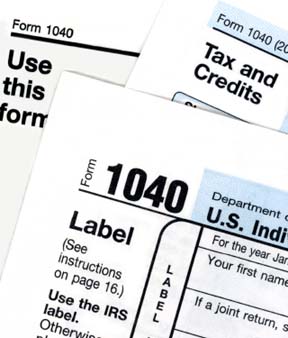As the April 18 filing deadline looms, a new wave of tax scams is heating up. Whether you’ve already filed your 2016 return — and especially if not — here’s how to protect yourself from these last-minute schemes currently making the rounds.
Don’t trust “update” requests. One popular phishing ploy this time of year involves emails supposedly from tax software providers such as TurboTax or TaxAct. They request users to “update” their information. “These ruses generally urge taxpayers to give up sensitive data such as passwords, Social Security numbers and bank account or credit card numbers,” warns the IRS. In addition to emails, beware of similar “update” requests by phone or text supposedly from tax software providers, banks or credit card companies.
Step lightly on TAP requests. Another info-phishing con: emails promising a refund that supposedly comes from the Taxpayer Advocacy Panel. While TAP is an authentic volunteer board that advises the IRS on taxpayer issues, it doesn’t deal with refunds or have access to any taxpayer’s personal and financial information, the agency notes. These emails are from scammers phishing for SSNs and financial account information.
Know the drill. Tax-related correspondence is mailed; the IRS and other tax agencies do not initiate contact by phone, text or email. In last year’s filing season, the IRS saw a 400 percent uptick in phishing and malware attempts. These were most commonly scam emails claiming a problem related to refunds or filing status, or seeking to confirm personal information, transcript orders or PIN information. These fakes include a link that leads to a scammer’s IRS-mirroring website, which may also harbor malware. Watch for tinkered addresses such as “irsgov” (without the dot between “IRS” and “gov”), irs.net or similar variations.
Meanwhile, the IRS impostor phone scam is alive and well, preying on taxpayers including recent immigrants. In addition to the usual ploys — threats of arrest, deportation or property seizure over an alleged debt — a new spin has IRS impostors promising a refund, a move to trick targets into sharing private information. If the phone isn’t answered, the scammers often leave an “urgent” callback request. Ignore it; instead, call the IRS at 800-829-1040.
Choose preparers to not lose. Good luck finding a tax preparer this late in the game, but if you’re still looking, here are some tips for finding one who’s reputable (if only for next year). Check this IRS directory for credentialed preparers, and here for organizations providing free help. the AARP Foundation Tax-Aide program offers free, individualized tax preparation geared toward low- to moderate-income taxpayers at more than 5,000 locations nationwide. If your adjusted gross income was less than $64,000 last year, you qualify for the IRS Free File program. Beware of preparers (especially with temporary storefronts or who conduct business at your home) who promise overly generous refunds, want you to sign a blank return, say that fees are based on the size of your refund or claim “secret” loopholes.
Accountants under attack. Let your numbers-cruncher know of these schemes that target them. In a new scam, the IRS reports that fraudsters pose as clients and ask tax preparers to make a last-minute change to their refund destination, often to a prepaid debit card. Tax preparers are urged to verbally reconfirm information with clients should they receive last-minute email requests to change an address or direct-deposit account for refunds.
Another scheme: emails to tax preparers that warn they need to update or access their own tax preparation software via a bogus “unlock” link that leads to a fake web page, where the preparers are asked for their user name and password so cybercrooks can access client information. Ruses targeting tax professionals also include attempts to steal data such as PTINs, EFINs or e-Service passwords.
For information about other scams, sign up for the Fraud Watch Network. You’ll receive free email alerts with tips and resources to help you spot and avoid identity theft and fraud. Keep tabs on scams and law enforcement alerts in your area at our Scam-Tracking Map.















